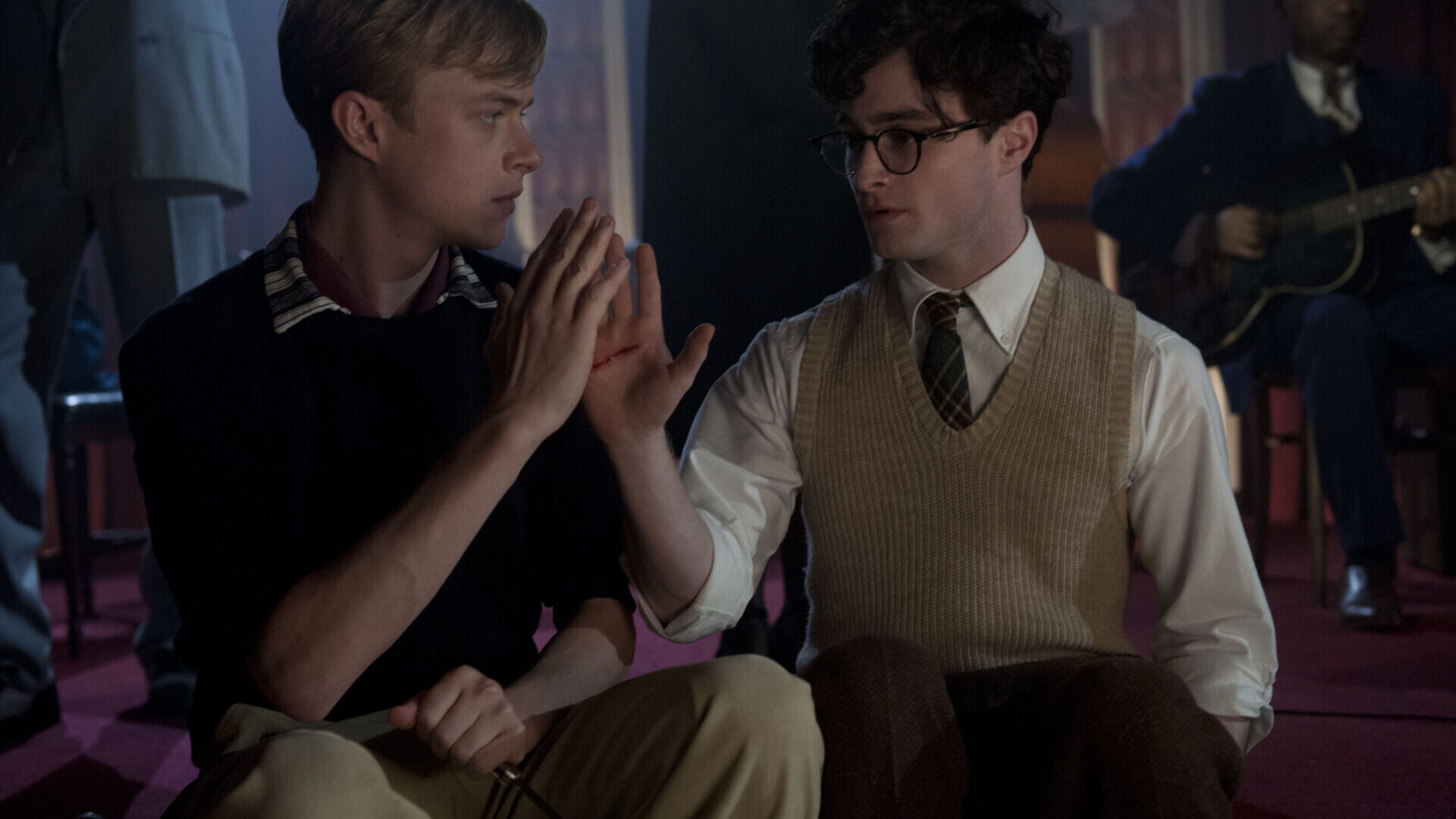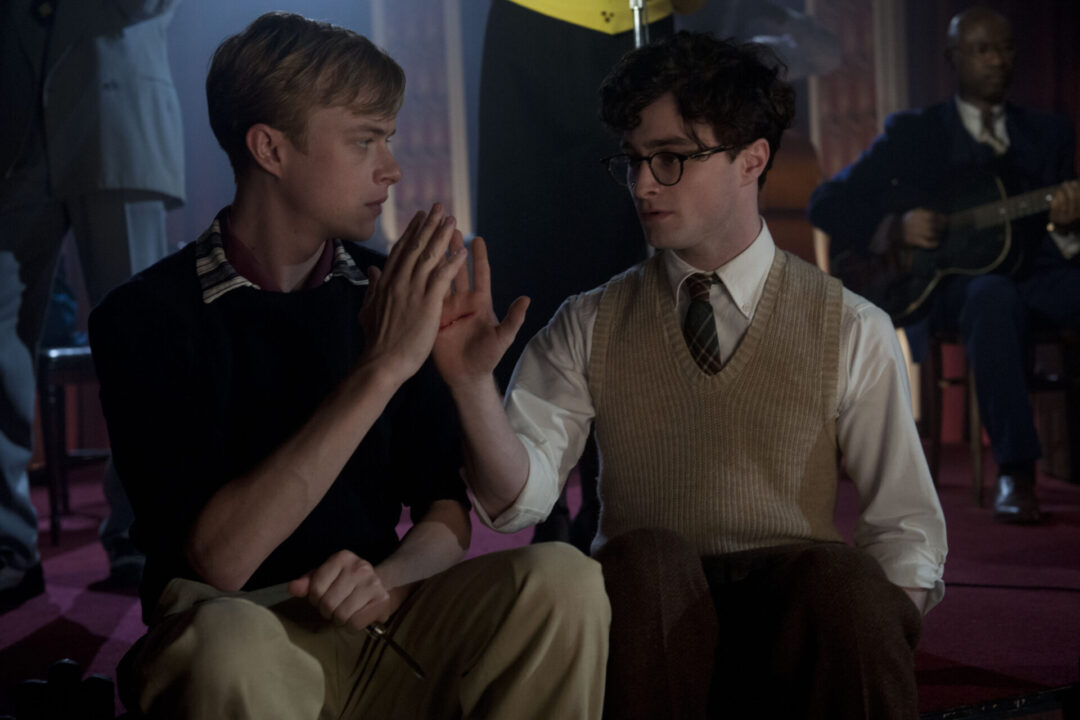Keen on dismissing the past, more formulaic and expected rules of the old literary writing method, the famous 60’s beat poet Allen Ginsberg was set on creating a “New Vision” of language, full of confronting fragrances that re-birthed the once dull and dead language into one, fresh and alive.
Daniel Radcliffe might’ve taken a page out of Ginsberg’s book in deciding his post-Wizardry film projects.
In the Ginsberg-entering-college set Kill Your Darlings, Radcliffe assumes the role of the bohemian writer as the young, unlearned student in his first year at Columbia University, which proves an interesting time to set a biopic about a person whose fame had come much later, with writing efforts including the definitive poem “Howl.” But the decision is made by screenwriters Austin Bunn and John Krokidas, with Krokidas directing, to set this movie in this chapter of Ginsberg’s life in order to introduce perhaps the most influential figure to shape his romantic view. That person is Lucien Carr, one of the earliest champions of “The New Vision,” which included a friendship with Jack Kerouac as well. Curiously, history books have little to no recording of Carr’s involvement in this monumental period in writing history, or that he existed at all. Which means that we didn’t know that Carr was once Ginsberg’s roommate, potential love interest, and an alleged murderer.
Played with laser-like intensity that continues to captivate, Dane DeHaan plays the free-spirited and rebellious Carr, such a fixating young romantic himself that he draws in all wanting men around him. If one-third’s ingredients of the movie is a new-jazz biography, the other two-thirds are romance and murder/mystery, making for deliciously appealing movie-making, and watching.
This love-letter to the beat generation imagined by Krokidas and Bunn (not coincidentally, film school college roommates themselves) is such an adoring ode to this romantic period that simply watching the film feels as educational as it does entertaining.
Radcliffe and DeHaan, both young talents with heavy-lifting franchise experience (DeHaan will be seen in next year’s The Amazing Spider-Man 2), prove that they have both the chops and, ahem, manhood, to slide into trickier, more demanding roles. As young, troubled teens confronting issues of homosexuality, the risky fare here is tested in only how well Krokidas gently guides the relationship and how the actors attempt to find the truths in them. Radcliffe shows once again his fearlessness though publicly expressed as nonchalance, in committing to scenes depicting male intercourse.
That Carr dismisses his homosexuality is what leads to the film’s larger plot, in which the much older male figure David Kammerer (Michael C. Hall), continually tormented by his rejection of his once young partner Carr, ultimately is met with tragic circumstances. In this real-life event, it is Ginsberg that is met with the decision of whether or not to move forward with helping cover up a murder that may or may not have rippling consequences of his own.
The film runs in a well-measured spurt. Only that competing elements of the story are inevitably needed to be drawn in which to authentically and fully tell this true story are what make the film appear as broad, self-contained, strokes on a canvas, rather than a more specifically focused composition. In needing to show Ginsberg’s sickly mother, his voice-over poetry, the drug-laced counterculture, and the joining of the young great minds of the beat movement, by the time the murder mystery comes around, it only feels like another card being stacked.
Though some extra ingredients of the recipe appear to boil over, it seems the only testament to how good a meal the filmmakers wanted to make. This love-letter to the beat generation imagined by Krokidas and Bunn (not coincidentally, film school college roommates themselves) is such an adoring ode to this romantic period that simply watching the film feels as educational as it does entertaining. Adding to the popping aesthetics of the counter-culture feel is (I am remiss to mention this late in the write-up) the always fantastic Ben Foster as a spaced-out William Burroughs, and Jack Huston, as a lived in Jack Kerouac, both adding integral flavors that compliment the group chemistry with Radcliffe and DeHaan and the picture as a whole.
In fact, it was the great William Faulkner that once said that “In writing, you must kill your darlings.” Meaning, to be a great artist, you can’t simply tread in the successes of your idols. In scope, these fine actors and filmmakers appear to walk away having done just that.
Ryan Rojas
Ryan is the editorial manager of Cinemacy, which he co-runs with his older sister, Morgan. Ryan is a member of the Hollywood Critics Association. Ryan's favorite films include 2001: A Space Odyssey, The Social Network, and The Master.


